|
Books Should Be Free Loyal Books Free Public Domain Audiobooks & eBook Downloads |
|
|
Books Should Be Free Loyal Books Free Public Domain Audiobooks & eBook Downloads |
|
Philosophy Books |
|---|
|
Book type:
Sort by:
View by:
|
By: St. George William Joseph Stock (1850-?) | |
|---|---|
 Guide to Stoicism
Guide to Stoicism
This book is a primer on the philosophy of stoicism, resurrected from its origins in Greek and Roman philosophy. The original philosophy was based on a reasoning process which it was assumed would lead to a virtuous life. Zeno, the founder of stoicism, did not begin expounding on its teachings until he was in his forties. He believed that the purpose of life was "to live consistently." Cleanthes, his disciple, added "with nature," so that the purpose of life became "to live consistently with nature." | |
By: Harry A. Lewis | |
|---|---|
 Hidden Treasures
Hidden Treasures
"Some succeed while others fail. This is a recognized fact; yet history tells us that seven-tenths of our most successful men began life poor." A selection of mini-biographies teaches us how some successful men have overcome odds to make their mark on history. | |
By: Thomas H. Burgoyne (1855-1894) | |
|---|---|
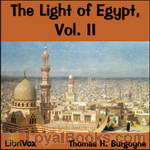 The Light of Egypt, vol II
The Light of Egypt, vol II
"The Light of Egypt" will be found to be an Occult library in itself, a textbook of esoteric knowledge, setting forth the "wisdom Religion" of life, as taught by the Adepts of Hermetic Philosophy. It will richly repay all who are seeking the higher life to carefully study this book, as it contains in a nutshell the wisdom of the ages regarding man and his destiny, here and hereafter. The London and American first edition, also the French edition, Vol. I, met with lively criticism from Blavatsky Theosophists, because it annihilates that agreeable delusion of "Karma" and "Reincarnation" from the minds of all lovers of truth for truth's sake. | |
By: Henry Drummond | |
|---|---|
 The Greatest Thing in the World and Other Addresses
The Greatest Thing in the World and Other Addresses
The spiritual classic The Greatest Thing In the World is a trenchant and tender analysis of Christian love as set forth in the thirteenth chapter of I Corinthians. The other addresses speak to other aspects of Christian life and thought. | |
By: James Cardinal Gibbons (1834-1921) | |
|---|---|
 The Faith of Our Fathers
The Faith of Our Fathers
The Faith of Our Fathers: A Plain Exposition and Vindication of the Church Founded by Our Lord Jesus Christ is a book published in 1876 by archbishop James Gibbons, which became a best-selling conversion manual in the United States, and by 1980 was in its 111th printing.(From the preface) “The object of this little volume is to present in a plain and practical form an exposition and vindication of the principal tenets of the Catholic Church. It was thought sufficient to devote but a brief space to such Catholic doctrines and practices as are happily admitted by Protestants, while those that are controverted by them are more elaborately elucidated... | |
By: Julia M. Grundy (b. 1874) | |
|---|---|
 Ten Days in the Light of Acca
Ten Days in the Light of Acca
This work is the story of a pilgrimage made over a hundred years ago by a group of American pilgrims. They were not headed for Canterbury, Rome or Jerusalem. Rather, they were headed for an historical but remote prison-city in a far corner of the Ottoman Empire. ‘Akká (Akko), now a city in Israel which attracts thousands of Bahá’í pilgrims each year, was but little thought of in that early period. It was originally the final place of exile and imprisonment for Bahá’u’lláh, a Persian nobleman who proclaimed that He was the Promised One of all religions and Messenger of God for this day and age... | |
By: Richard W. Church (1815-1890) | |
|---|---|
 Bacon
Bacon
This investigation of Bacon the scholar and man of letters begins with a look at the early days ang progresses to his relationships with Queen Elizabeth and James I. It includes accounts of his positions as solicitor general, attorney-general, and chancellor. The book concludes with Bacon's failure, his overall philosophy, and summaries of his writings. | |
By: Mírzá Abu’l-Fadl Gulpáygání (1844-1914) | |
|---|---|
 The Brilliant Proof (Burhäne Lämé) in reply to an attack upon the Bahai Revelation by Peter Z. Easton
The Brilliant Proof (Burhäne Lämé) in reply to an attack upon the Bahai Revelation by Peter Z. Easton
“In these days,” writes the renowned Bahá’í scholar, Mírzá Abu’l-Fadl, “which are the latter days of 1911, A. D. and the early days of 1330 A. H., I have seen a curious article which astonished me. What did I see? I find that one of the missionaries of the Protestant sect, who accounts himself among the learned men of the twentieth century, a helper of the pure religion of Christ and one of the civilized and cultured occidentals, by name, Peter Z. Easton, has been so provoked by jealousy... | |
By: The Three Initiates | |
|---|---|
 Kybalion (version 2)
Kybalion (version 2)
The Kybalion: Hermetic Philosophy is a 1908 book claiming to be the essence of the teachings of Hermes Trismegistus, published anonymously by a group or person under the pseudonym of "the Three Initiates". The Kybalion was first published in 1908 by the Yogi Publication Society and is now in the public domain, and can be found on the internet. The book purports to be based upon ancient Hermeticism, though many of its ideas are relatively modern concepts arising from the New Thought movement. The book early on makes the claim that it makes its appearance in one's life when the time is appropriate and includes variations of material found in the book of Proverbs... | |
By: Thomas Browne | |
|---|---|
 Religio Medici and Hydriotaphia
Religio Medici and Hydriotaphia
Religio Medici (The Religion of a Doctor) sets out Sir Thomas Browne's spiritual testament as well as being an early psychological self-portrait. In its day, the book was a European best-seller. It was published in 1643 by the newly-qualified physician, and its unorthodox views placed it swiftly upon the Papal Index Librorum Prohibitorum in 1645. Although predominantly concerned with Christian faith, the Religio also meanders into digressions upon alchemy, hermetic philosophy, astrology, and physiognomy... | |
By: Josephine Preston Peabody (1874-1922) | |
|---|---|
 After Music
After Music
Josephine Preston Peabody was an American poet and dramatist. She was born in New York and educated at the Girls’ Latin School, Boston, and at Radcliffe College. | |
By: Charles Bradlaugh (1833-1891) | |
|---|---|
 Ancient and Modern Celebrated Freethinkers
Ancient and Modern Celebrated Freethinkers
| |
By: L. W. Rogers (1859-1953) | |
|---|---|
 Elementary Theosophy
Elementary Theosophy
This book provides the basics of Theosophy and perhaps the beginning of a life long journey. Theosophy comes from the ancient wisdom that man and nature are as inseparable from the universe as the universe is inseparable from man and nature. It is a science and a philosophy, not a religion which depends on (dogma) faith. Knowledge gained through the study of Theosophy comes from the understanding of natural laws and harmony of the universe. Rogers shows us why we cannot separate ourselves from God (universe); the evolution of the soul; rebirth after physical death; why we don’t remember past lives and much more... | |
By: Jesse Lynch Williams (1871-1929) | |
|---|---|
 Why Marry?
Why Marry?
Why Marry? is a comedy, which "tells the truth about marriage". We find a family in the throes of proving the morality of marriage to a New Age Woman. Can the family defend marriage to this self-supporting girl? Will she be convinced that marriage is the ultimate sacredness of a relationship or will she hold to her perception that marriage is the basis of separating two lovers."Why Marry?" won the first Pulitzer Prize for Drama. | |
By: Edna Lyall (1857-1903) | |
|---|---|
 The Autobiography of a Slander
The Autobiography of a Slander
The Autobiography of a Slander exposes the consequences of reckless words or, even worse, intentionally disparaging words. In this moral tale, told from the point of view of "the slander", Edna Lyall (pseudonym used by Ada Ellen Bayley) reveals her ideals and goals in life and relationships. | |
By: John Charlton Hardwick | |
|---|---|
 Religion and Science from Galileo to Bergson
Religion and Science from Galileo to Bergson
This history of Western philosophy, published in 1920, explores the ways mankind has explained the natural world during the last few centuries, whether by spiritual interpretation or through advances in science. From the Preface: "The chapters which follow are not intended as even a slight sketch of the history of Thought since the Renaissance. Their object is more modest, i.e. to illustrate the thesis that mankind, being 'incurably religious,' insists (however hopeless the enterprise may sometimes seem) upon interpreting the universe spiritually." | |
By: Marguerite Bernard and Edith Serrell | |
|---|---|
 Deer Godchild
Deer Godchild
A young New-Yorker of twelve heard an appeal for the Fatherless Children of France and his heart was touched. He had no money, but he resolved to give his spare time and his utmost energy to support a "kid in France." The French child needed ten cents worth of extra food each day, in order to grow up with strength and courage. The little American godfather earned those ten cents; he sold newspapers at the subway entrance, after school hours, and undertook an amazing variety of more or less lucrative odd jobs... | |
By: Alfred Lawson (1869-1954) | |
|---|---|
 Born Again
Born Again
"I doubt that anyone who reads [Born Again] will ever forget it: it is quite singularly bad, with long undigestible rants against the evils of the world, an impossibly idealistic Utopian prescription for the said evils, and - as you will have gathered - a very silly plot." - oddbooks.co.ukAlfred Lawson was a veritable Renaissance man: a professional baseball player, a luminary in the field of aviation, an outspoken advocate of vegetarianism and economic reform, and the founder of a pseudo-scientific crackpot philosophy called Lawsonomy... | |
By: Helen Ekin Starrett (1840-1920) | |
|---|---|
 Letters to a Daughter and A Little Sermon to School Girls
Letters to a Daughter and A Little Sermon to School Girls
Helen Ekin Starrett, journalist, mother of two daughters, grandmother of seven granddaughters and teacher to many young girls at the Starrett School for Girls offers lessons in life and religion to girls about to "pass out from the guardianship of home into life with its duties and trials". | |
By: Various | |
|---|---|
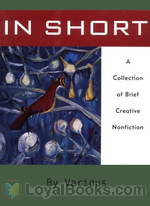 Short Nonfiction Collection
Short Nonfiction Collection
A collection of ten short essays or other short nonfiction works in the public domain. | |
By: Sir Edwin Arnold (Translator) (1832-1904) | |
|---|---|
 Bhagavad Gita
Bhagavad Gita
One of the world’s most valued scriptures, the Bhagavad Gita is a Hindu scripture which is a part of the Indian epic Mahabharata. Undeniably, it is also one of the most important texts in the history of literature and philosophy. The scripture offers a guide on how to achieve a self-sufficient life and clarification of Indian theology. Written in the form of a poetic dialogue between Krishna and Arjuna, the piece is comprised of 700 verses. It depicts the relationship between man and God, a divine purpose, and the omnipresence of God that serves to reward good... | |
By: Unknown | |
|---|---|
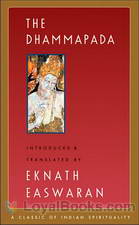 The Dhammapada
The Dhammapada
The Dhammapada is is a Buddhist scripture, containing 423 verses in 26 categories. According to tradition, these are verses spoken by the Buddha on various occasions, most of which deal with ethics. It is is considered one of the most important pieces of Theravada literature. Despite this, the Dhammapada is read by many Mahayana Buddhists and remains a very popular text across all schools of Buddhism. – Excerpted from Wikipedia | |
By: Mikhail Bakunin (1814-1876) | |
|---|---|
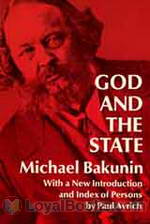 God and the State
God and the State
Bakunin’s most famous work, published in various lengths, this version is the most complete form of the work published hitherto. Originally titled “Dieu et l’état”, Bakunin intended it to be part of the second portion to a larger work named “The Knouto-Germanic Empire and the Social Revolution” (Knouto-Germanic Empire is in reference to a treaty betwixt Russia and Germany at the time), but the work was never completed. (from book introduction) | |
By: Various | |
|---|---|
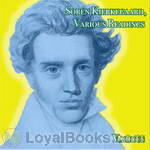 Soren Kierkegaard, Various Readings
Soren Kierkegaard, Various Readings
The writings listed here represent books about Soren Kierkegaard. A fragment of his work, On the Dedication to "That Single Individual", has made it to the public domain. Who was Soren Kierkegaard? He was a Danish philosopher and religious author; b. Copenhagen May 6, 1813; d. there Nov. 11, 1855. His father, Michael, a clothing merchant, once cursed God when he was young. This one incident caused him so much distress that it affected him with a deep melancholy, which he transferred to poor Soren... | |
 Poems and Prose for the Departed
Poems and Prose for the Departed
This is a collection of short poems and readings, both religious and secular, on death and bereavement. | |
By: Genevieve Behrend (1881-1960) | |
|---|---|
 Your Invisible Power
Your Invisible Power
Genevieve Behrend was a teacher of Mental Science, a New Thought discipline created by Thomas Troward (1847- 1916). Your Invisible Power, published in 1921, is her first and most famous book. It is a guide to the use of visualization and other mental processes in life enhancement and the achievement of personal goals. | |
By: David Friedrich Strauss (1808-1874) | |
|---|---|
 The Life of Jesus Critically Examined
The Life of Jesus Critically Examined
Strauss was an early pioneer in the ongoing 'Quest of the Historical Jesus' held amongst New Testament scholars, and his Life of Jesus is one of the few landmarks in the field. The first edition of Strauss' book was published in Germany in 1835 when he was only 27 years old, and which by 1840 had gone through four editions. He focused his attention on battling two theological fronts which were current at the time - the traditional Orthodox who believed the miracles in the Gospels were to be taken as literal, yet supernatural, history; and the Rationalists, who believed that the Gospel miracles were all true but could be explained by natural and purely physical causes... | |
By: Aristotle (384 BC - 322 BC) | |
|---|---|
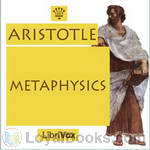 Metaphysics
Metaphysics
Metaphysics is essentially a reconciliation of Plato’s theory of Forms that Aristotle acquired at the Academy in Athens, with the view of the world given by common sense and the observations of the natural sciences. According to Plato, the real nature of things is eternal and unchangeable. However, the world we observe around us is constantly and perpetually changing. Aristotle’s genius was to reconcile these two apparently contradictory views of the world. The result is a synthesis of the naturalism of empirical science, and the mysticism of Plato, that informed the Western intellectual tradition for more than two thousand years... | |
By: Friedrich Nietzsche | |
|---|---|
 Ecce Homo
Ecce Homo
The philosopher Friedrich Nietzsche’s autobiography, Ecce Homo, was the last prose work that he wrote before his illness in 1889. Coming at the end of an extraordinarily productive year in which he had produced The Twilight of the Idols and The Antichrist, Nietzsche shuns any pretense at modesty with chapter titles include “Why I am so Wise”, “Why I am so Clever” and “Why I Write Such Excellent Books”. His translator Anthony M. Ludovici states, Ecce Homo “is not only a coping-stone... | |
By: Max Heindel (1865-1918) | |
|---|---|
 The Rosicrucian Mysteries
The Rosicrucian Mysteries
A primer for those interested in the basic philosophy, beliefs & secrets of the Rosicrucians. | |
By: Unknown | |
|---|---|
 Oscar Wilde: Art and Morality. A Defence of The Picture of Dorian Gray
Oscar Wilde: Art and Morality. A Defence of The Picture of Dorian Gray
“Who can help laughing when an ordinary journalist seriously proposes to limit the subject-matter at the disposal of the artist?” “We are dominated by journalism…. Journalism governs for ever and ever.” One of the nastiest of the British tabloids was founded a year too late to join in the moral panic generated to accompany Oscar Wilde’s court appearances in 1895. Yet there was no shortage of hypocritical journalists posing as moral arbiters to the nation, then as now. This compendium... | |
By: Plato (424/423 BC - 348/347 BC) | |
|---|---|
 Apology
Apology
The Apology of Socrates is Plato's version of the speech given by Socrates as he unsuccessfully defended himself in 399 BC against the charges of "corrupting the young, and by not believing in the gods in whom the city believes, but in other daimonia that are novel" (24b). "Apology" here has its earlier meaning (now usually expressed by the word "apologia") of speaking in defense of a cause or of one's beliefs or actions (from the Ancient Greek ἀπολογία). | |
By: Various | |
|---|---|
 Girl Scout Collection
Girl Scout Collection
These articles, pamphlets, and stories relating to the Girls Scouts of America touch on the history, activities, ideals, and traditions of this remarkable girls' organization. Though some of the articles appear redundant, they were selected to represent a contemporary view spanning five years of the organization's early popularity (1917-1921). Of significance are the detailed descriptions of Girl Scout involvement in war work during what is now known as World War I. Girl Scouts were prepared through their training for merit badges to be independent, resourceful, reliable, and helpful... | |
By: Immanuel Kant (1724-1804) | |
|---|---|
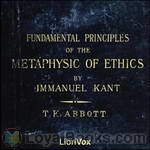 Fundamental Principles of the Metaphysic of Morals
Fundamental Principles of the Metaphysic of Morals
The Fundamental Principles of the Metaphysic of Morals, also known as The Groundwork of the Metaphysics of Morals or Foundations of the Metaphysics of Morals or Grounding of the Metaphysics of Morals, is Immanuel Kant's first contribution to moral philosophy. It argues for an a priori basis for morality. Where the Critique of Pure Reason laid out Kant's metaphysical and epistemological ideas, this relatively short, primarily meta-ethical, work was intended to outline and define the concepts and arguments shaping his future work The Metaphysics of Morals. However, the latter work is much less readable than the Fundamental Principles. | |
By: the Three Initiates (1908) | |
|---|---|
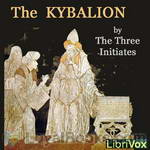 The Kybalion
The Kybalion
The Kybalion: Hermetic Philosophy is a 1908 book claiming to be the essence of the teachings of Hermes Trismegistus, published anonymously by a group or person under the pseudonym of “the Three Initiates”. (Introduction by Wikipedia) | |
By: James Allen (1864-1912) | |
|---|---|
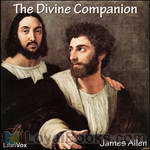 The Divine Companion
The Divine Companion
James Allen was a British philosophical writer known for his inspirational books and poetry and as a pioneer of the self-help movement.In the introduction Lily Allen writes: "It cannot be said of this book that James Allen wrote it at any particular time or in any one year, for he was engaged in it over many years and those who have eyes to see and hearts to understand will find in its pages the spiritual history of his life. It was his own wish that The Divine Companion should be the last manuscript of his to be published. 'It is the story of my soul,' he said, 'and should be read last of all my books, so that the student may understand and find my message in its pages.'" | |
By: Elizabeth Klett (1867-1936) | |
|---|---|
 Six Characters in Search of an Author
Six Characters in Search of an Author
Six Characters in Search of an Author (Sei personaggi in cerca d’autore) is the most famous and celebrated play by the Italian writer Luigi Pirandello. Pirandello, in the preface to the play, says that whenever a reader opens Dante’s Inferno, Francesca will drift down from the dark wind in her circle of Hell and tell the Pilgrim her story; and it will always be for the first time – just as the Mother in Pirandello’s play at one point makes an agonizing cry, always for the first time. Each character sees events and the other characters differently... | |
By: Thomas Troward (1847-1916) | |
|---|---|
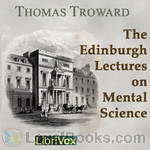 The Edinburgh Lectures on Mental Science
The Edinburgh Lectures on Mental Science
Thomas Troward was a divisional Judge in British-administered India. His avocation was the study of comparative religion. Influences on his thinking, as well as his later writing, included the teachings of Christ, Islam, Hinduism, and Buddhism. After his retirement from the judiciary in 1896, Troward set out to apply logic and a judicial weighing of evidence in the study of matters of cause and effect. The philosopher William James characterized Troward’s Edinburgh Lectures on Mental Science as "far and away the ablest statement of philosophy I have met, beautiful in its sustained clearness of thought and style, a really classic statement... | |
By: Aristotle (384 BCE-322 BCE) | |
|---|---|
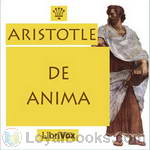 De Anima
De Anima
On the Soul (Greek Περὶ Ψυχῆς (Perì Psūchês), Latin De Anima) is a major treatise by Aristotle on the nature of living things. His discussion centres on the kinds of souls possessed by different kinds of living things, distinguished by their different operations. Thus plants have the capacity for nourishment and reproduction, the minimum that must be possessed by any kind of living organism. Lower animals have, in addition, the powers of sense-perception and self-motion (action). Humans have all these as well as intellect... | |
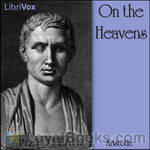 On the Heavens
On the Heavens
On the Heavens (Greek: Περί ουρανού, Latin: De Caelo or De Caelo et Mundo) is Aristotle's chief cosmological treatise. In it Aristotle argues that the Earth is a sphere by pointing to the evidence of lunar eclipses. Aristotle also provides a detailed explanation of his theory of 'gravity' arguing that things which contain 'earth' fall towards the centre of the Universe because 'earth' is naturally attracted to the centre of the Universe. Aristotle argues that if the planet Earth was moved to the location of the Moon then objects which contain 'earth' would not fall towards the centre of the Earth but rather towards the centre of the Universe... | |
 On Generation and Corruption
On Generation and Corruption
On Generation and Corruption (Ancient Greek: Περὶ γενέσεως καὶ φθορᾶς, Latin: De Generatione et Corruptione, also known as On Coming to Be and Passing Away) is a treatise by Aristotle. Like many of his texts, it is both scientific and philosophic (although not necessarily scientific in the modern sense). The philosophy, though, is essentially empirical; as in all Aristotle's works, the deductions made about the unexperienced and unobservable are based on observations and real experiences... | |
By: Plato (426-347 BCE) | |
|---|---|
 Meno
Meno
Meno (Ancient Greek: Μένων) is a Socratic dialogue written by Plato. Written in the Socratic dialectic style, it attempts to determine the definition of virtue, or arete, meaning in this case virtue in general, rather than particular virtues, such as justice or temperance. The goal is a common definition that applies equally to all particular virtues. Socrates moves the discussion past the philosophical confusion, or aporia, created by Meno's paradox (aka the learner's paradox) with the introduction of new Platonic ideas: the theory of knowledge as recollection, anamnesis, and in the final lines a movement towards Platonic idealism.. (Introduction by Wikipedia) | |
By: Max Stirner (1806-1856) | |
|---|---|
 The Ego and His Own
The Ego and His Own
In this book, his most famous, Max Stirner presents a philosophical case for a radical egoism that shuns the socially-oriented outlooks of both "establishment" ideologies and of revolutionaries in favor of an extreme individualism. The book is most widely talked about today only through the lens of other philosophers' thought: Karl Marx and Friedrich Engels launched a famous assault on it in The German Ideology, and some draw a connection between Stirner's thoughts here and Nietzsche's egoism a generation later. But it is worth reading in its own right, as much for its lyricism as the challenge of its philosophical proposals. | |
By: St. John Chrysostom (349-407) | |
|---|---|
 Commentary on Galatians
Commentary on Galatians
St. Chrysostom’s Commentary on the Epistle to the Galatians is continuous, according to chapter and verse, instead of being arranged in Homilies, with a moral or practical application at their close, as in his exposition of other Epistles. It was written in Antioch, as Montfaucon infers from a reference which the Author, makes upon Chap. i., ver. 16 to other of his writings, which certainly were written about the same time in that city. (Introduction from the preface by John Henry Newman) | |
By: Ludwig Feuerbach (1804-1872) | |
|---|---|
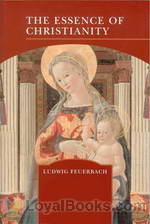 The Essence of Christianity
The Essence of Christianity
Taking issue with Hegel’s sense that God, as Logos, is somehow central to all that is, Feuerbach explores his own notion that Christianity, as religion, grew quite naturally from ordinary human observation. Only upon deeper, systematic reflection did people postulate a divine source–God. Religious teaching which loses sight of its own essential rootedness in human experience runs the risk becoming overly abstract, disconnected even, from realities which shape humanity and which impart meaning and dignity to life... | |
By: Camille Flammarion (1842-1925) | |
|---|---|
 Omega: The Last Days of the World
Omega: The Last Days of the World
Omega: The Last Days of the World is a science fiction novel by astronomer Camille Flammarion. On 25th century Earth, a comet is on a path to collide with the Earth ending it all. Astronomers predict different scenarios as to how they will all die depending on the chemical composition of the comet. Omega probes the philosophical and political consequences that arise as the human race faces the end of the world. | |
By: Various | |
|---|---|
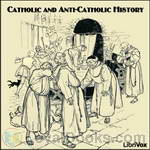 Catholic and Anti-Catholic History
Catholic and Anti-Catholic History
G.K. Chesterton and James Walsh join Hilaire Belloc in an energetic rollout of the means by which history becomes propaganda, to the damage, not only to truth, but to the human soul. | |
By: Arnold Bennett (1867-1931) | |
|---|---|
 Self and Self-management: Essays about Existing
Self and Self-management: Essays about Existing
Bennett's essays always provide food for thought and bring a wry smile to the lips. Human nature, it appears, changes little over the ages, and Bennett's writing stands the test of time, though in the case of some of the essays in this eclectic collection, it is well to remember that they were written at the time of the First World War and the fight for women's suffrage. | |
By: H. G. Wells (1866-1946) | |
|---|---|
 Anticipations
Anticipations
Wells considered this book one of his most important, a natural follow-up to such works as his Man of the Year Million and The Time Machine. His goal was to get people to think and act in new ways. The book starts with a look at how humans get along socially and how they carry out their business ventures. It then discusses how these elements influence others, such as politics, the world of work, and education. H. G. tried to make clear how the current social order was disintegrating without preparing another to take its place. He then traced the roots of democracy, which in its present state he saw as unworkable. Instead, he proposed a new republic. He also critiqued modern warfare. | |
By: Aristotle (384 BCE-322 BCE) | |
|---|---|
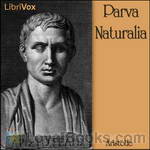 Parva Naturalia
Parva Naturalia
Parva Naturalia [the "short treatises on nature" (a conventional Latin title first used by Giles of Rome)] is a collection of books by Aristotle, which discuss natural phenomena involving the body and the soul. The books are as follows:I - On Sensation and the SensibleII - On Memory and RecollectionIII - On Sleeping and WakingIV - On DreamsV - On Prophecy in SleepVI - On Longevity and Shortness of LifeVII - On Youth and Old Age, Life and Death VIII - On Respiration | |
By: Arthur Conan Doyle (1859-1930) | |
|---|---|
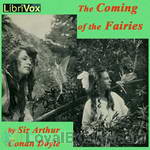 The Coming of the Fairies
The Coming of the Fairies
After a number of deaths in his close family, Sir Arthur Conan Doyle turned to spiritualism in hope of finding proof of the afterlife. Being open in this way, he wanted to believe that spirits and other supernatural being including fairies were real. Because of this he believed the photographs of fairies taken by the Cottingley girls were proof of the existence of such beings. In this book he presents his stance on the issue. Eventually it was proven that the photographs were indeed a hoax. | |
By: Plato (424-348 BC) | |
|---|---|
 Laws
Laws
Νόμοι (Laws) is Plato's final dialogue written after his attempt to advise the tyrant Dionysius II of Syracuse. The dialogue takes place between: an Athenian Stranger (Socrates? A god in human form?); the quiet Lacedaemonian Megillus; and the Cretan Cleinias. The Stranger asks whether humans live to be more effective at waging war or if there is something more important a legislator should seek to achieve. During their pilgrimage Cleinias discloses his role in the establishment of a new colony... | |
By: G. K. Chesterton (1874-1936) | |
|---|---|
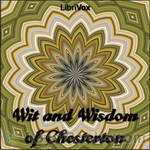 Wit and Wisdom of Chesterton
Wit and Wisdom of Chesterton
In this collection, Bevis Hillier has put together some of Chesterton's essays in "The Defandant", "Varied Types" and "Tremendous Trifles". These 12 pieces were chosen to giving a peek into the margins of Chesterton's work and give a sense of the distinctive flavor of his mind. They were also chosen with an eye to showing what a complex and fascinating character he was. | |
By: Samuel D. Gordon (1859-1936) | |
|---|---|
 Quiet Talks about Jesus
Quiet Talks about Jesus
So far as I can find out, I have no theory about Jesus to make these talks fit into. I have tried to find out for myself what the old Book of God tells about Him. And here I am trying to tell to others, as simply as I can, what I found. It was by the tedious, twisting path of doubt that I climbed the hill of truth up to some of its summits of certainty. I am free to confess that I am ignorant of the subject treated here save for the statements of that Book, and for the assent within my own spirit to these statements, which has greatly deepened the impression they made, and make... | |
By: Edgar Thurston (1855-1935) | |
|---|---|
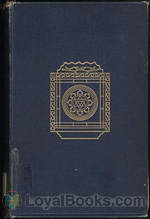 Omens and Superstitions of Southern India
Omens and Superstitions of Southern India
This book deals mainly with some aspects of what may be termed the psychical life of the inhabitants of the Madras Presidency, and the Native States of Travancore and Cochin. | |
By: George Horace Lorimer (1869-1937) | |
|---|---|
 Letters from a Self-Made Merchant to His Son
Letters from a Self-Made Merchant to His Son
Being the Letters written by John Graham, Head of the House of Graham & Company, Pork-Packers in Chicago, familiarly known on 'Change as "Old Gorgon Graham," to his Son, Pierrepont, facetiously known to his intimates as "Piggy." George Horace Lorimer was an American journalist and author. He is best known as the editor of The Saturday Evening Post. | |
By: Various (1833-1884) | |
|---|---|
 John Stuart Mill; His Life and Works
John Stuart Mill; His Life and Works
This biography is actually a series of essays by prominent personalities of the time that shed light on John Stuart Mill's life and areas of endeavor. Those areas include his experiences in India House, his moral character, certain botanical explorations, how effective he was as a critic, studies in morals and the law, and discoveries concerning political economy. They also explore ideas concerning his influence on institutions of higher learning, accomplishments as a politician, and fame as a philosopher. | |
By: Anonymous | |
|---|---|
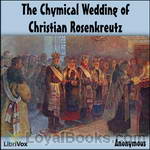 The Chymical Wedding of Christian Rosenkreutz
The Chymical Wedding of Christian Rosenkreutz
The Chymical Wedding of Christian Rosenkreutz was edited in 1616 in Strasbourg (annexed by France in 1681). It is the third of the original manifestos of the mysterious "Fraternity of the Rose Cross" (Rosicrucians). NOTE: It was translated into English for the first time in 1690 by E. Foxcroft. This translation became the source for many of the modern attempts to improve the original. The translation presented here is that of E. Foxcroft. Although the book first appeared in 1616, the story takes place over 150 years earlier... | |
By: Marcus Tullius Cicero (106-43 BC) | |
|---|---|
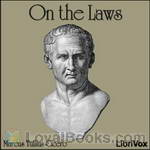 On the Laws
On the Laws
De Legibus (On the Laws) is a philosophical dialogue between: Cicero's friend Titus Pomponius Atticus; Cicero's brother Quintus; and Cicero himself. The dialogue is written in the style of Plato who was greatly revered by Cicero. De Legibus forms a continuation of Cicero's own work De re Publica (On the Commonwealth or On the Republic) and is also a response to Plato's work Νόμοι (Laws). It is unknown how many books the work originally contained but several complete books have been lost. Cicero's... | |
By: Plato (Πλάτων) (c. 428 BC - c. 347 BC) | |
|---|---|
 Republic (version 2)
Republic (version 2)
The Republic is a Socratic dialogue written by Plato around 380 BC concerning the definition of justice and the order and character of the just city-state and the just man. It is Plato's best-known work and has proven to be one of the most intellectually and historically influential works of philosophy and political theory. In it, Socrates along with various Athenians and foreigners discuss the meaning of justice and examine whether or not the just man is happier than the unjust man by considering a series of different cities coming into existence "in speech", culminating in a city (Kallipolis) ruled by philosopher-kings; and by examining the nature of existing regimes... | |